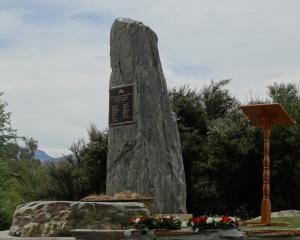However much the allegations against them may be discounted as the product of minds inflamed against them by the bitterness induced by the sense of personal loss and injustice and by the spectacle of a country devastated and reduced to ruins - cultivated fields trampled down, villages razed to the ground, costly buildings shattered by shell fire, monuments destroyed, the result of the industry of the people swept away - it is impossible to believe that there is not a strong element of truth in the evidence which is directed to show that the invaders have been guilty of atrocities of a kind that would ordinarily be more readily ascribed to primitive races than to a country that has made claim to be regarded as a home of refinement and culture.
The Belgian Commission of Inquiry has collected a volume of testimony which cannot be lightly disregarded.
That the Germans will continue to affirm that the charges against them have no solid foundation in truth may be expected.
Unfortunately for the Germans, however, it is becoming increasingly evident that they have been carrying on a campaign of mendacity throughout the world and that they have been circulating far and wide false statements concerning their exploits in the war.
The exposure of the methods they have been practising in this particular direction necessarily weakens their claims to be believed in respect of the charges that have been preferred against them of violating the ordinary rules of war and of committing the gravest atrocities against the little nation that thwarted them in their plans for the invasion of France.
The personal losses of the Belgians whose lives have been spared - driven from their homes, deprived of their possessions, and reduced in the majority of cases to a state of poverty and helplessness - make a direct appeal to the sympathies of the peoples of the allied nations.
We commend to the favourable consideration of the people of Otago the movement to offer financial help to a sorely-distressed nation.
• On a troopship the lot of the men is infinitely better than that of the horses. Six weeks aboard a transport is a shattering experience for horses.
Some of them cannot weather it, and in consequence have reserved for them the inglorious end of becoming food for the sharks.
Imagine a horse condemned for six weeks to stand in a circumscribed space with a margin of 3in on each side of him!
To lie down is impossible, and exercise is out of the question.
The horse is not immune from the equine equivalent of sea-sickness, added to which is the enforced standing for six weeks.
Day and night horse picquets keep an eye on the beasts.
When from the strain of continuous standing a horse begins to show signs of collapsing, a stout canvas sling is passed under its girth and fastened securely to a fixture above.
This supports the animal and lifts the weight from the enfeebled knees. But when a horse collapses before it can be slung, the troopers feel that life is hardly worth living.
At the dead of night there goes up the cry, immortalised by some military bard in the line, ''There's another adjective horse gone down.''
All must turn out of bunk and lend a hand to get the unfortunate animal up.
After the fifth such call in one night the average trooper has got past the stage of politeness.
It is obviously impossible that horses on troopships can arrive in anything like condition after a six-weeks' sea voyage.
An authority estimates that they require six weeks after landing to get them back to condition.
The horses leaving New Zealand presently are now losing their winter coats, and after passing through tropical latitudes they will have to face a European winter. - ODT, 10.9.1914.
• COPIES OF PICTURE AVAILABLE FROM ODT FRONT OFFICE, LOWER STUART ST, OR WWW.OTAGOIMAGES.CO.NZ

